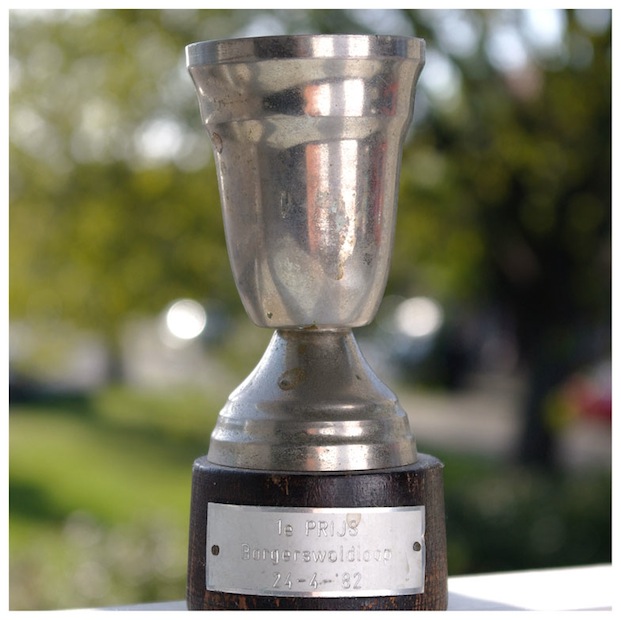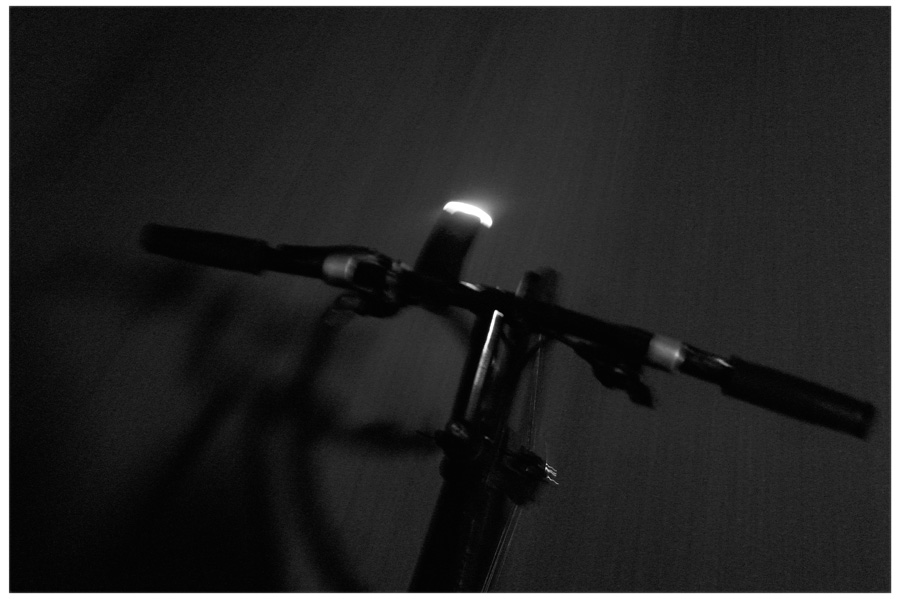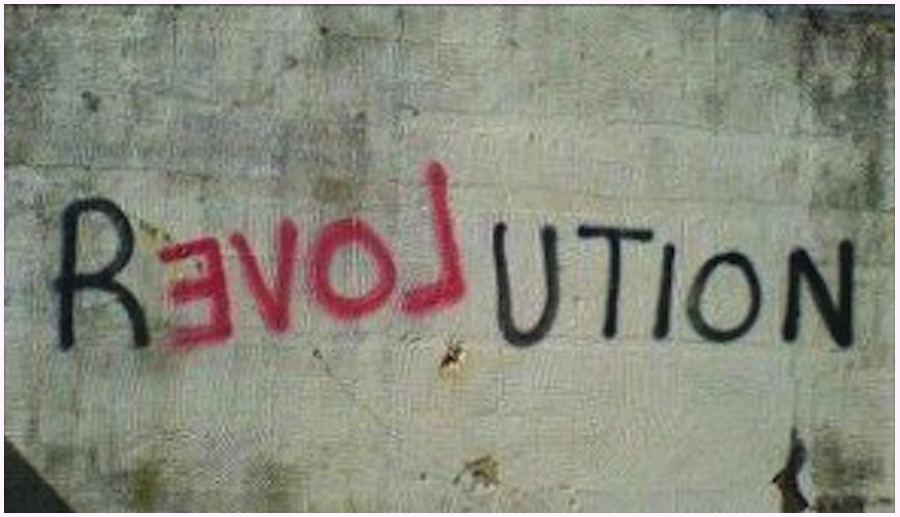This game requires daily training and practice
- Details
- Hits: 8579

"Make it quick
. Run like hell"
Lemmy Kilmister on Motörhead's 2013 studio album 'Aftershock', track 2: 'Coup De Grace'
"[T]try to live as consciously, as conscientiously, and as completely as possible and learn who you are and who or what it is that ultimately decides."
C.G. Jung, Letters Vol. II, Pages 300-301
"Win or be damned" It went trough my head before I knew I had to win -- or be damned. I was the only non-atheletic-club-member; a soloist. My spirit rode my body like a jockey on the back of a horse. Everything transcended into opportunity. Pain is only an indication of where potential for growth lies. Go trough it and you grow. It's a human law. It opens doors to slip into dark corners that otherwise remain closed.
Because being the fastest that Saturday morning they gave me an award for it -- and that is the great thing about competitive sport: you win when you are the first to finish. Not, as in the arts or politics, because you have a way of charming the jury to award you (or annoying them and become an official looser). Winning in the arts, with all thou respect, is vulgar in a way. Like being appointed Buddhist Of The Year, or Employee of the Month. It's politics. Winning happens in the mind first. Screw awards -- excuse my French -- they merely tell the story of the people giving them away! Enjoy the game together. What Reinoud Eleveld (we spent two weeks with team and crew filming a Golf-pro training-camp in Portugal once) calls: The Spirit Of The Game.
Why are you showing the cup then in that slickly lit pack shot above; are you trying to impress?
Because from then, at that age (1982, 14 years at the time, the age of my oldest son now) what I remember is the chuckled look on the official's face while handing me the award at the price-ceremony afterwards. They didn't know who I was, where I was from. All others where decent paying members of a running club, decently dressed. I ran on normal shoes, my style must have been going against the status quo (which it has been ever since; generating quit a few laughs now and then -- which you get used to in a way -- focussing on what matters: having fun). It felt like having beaten something in how the system itself wants things to turn out. The winner is expected to come from within.
What they didn't know was that I had trained for 3 or 4 years prior to that.
Flow in the Dark
- Details
- Hits: 8553

Above: Flow in the Dark. Training is making the most of the least amount of time.
"Stimulate trust. Discipline is not just doing what the boss says. Every player has to take care that his fellow team players know they can count on him. Johan Cruijff: "I am not interested in the player with the ball. I am interested in what happens at the other sides of the field, how they play there, how they take care of the execution of their tasks. The man with the ball has an easy job, but the real battle is happening at the other sides of the field, where the match is made." The key-element in discipline is trust. Johan Cruijff: "[ teamplayers] need to be able to trust upon each other." With everyone of us trust begins with family, neighbourhood, a couple of good friends. As time progresses the world enlarges. Building on that foundation, what follows is a three step ladder. It is the leaders task to see to it that fellow players will get up those stairs successfully. [...] The second step on the ladder of trust is a shift of focus towards stimulation of team-unity, with emphasis on shared operations. The third step is about Identification with other people. Leaders in their role as mentor for developing talent. Role models. Marco van Basten: "I am always curious for certain psychological aspects. How is it possible a player like me, a week later can experience such a fall-back? How is it that a footballplayer later in life knows how to keep a grip on his shape? Why is it that especially a Striker goes trough such a lot of ups and downs? Top-politicians and top-bussinespeople got to also acknowledge their lesser periods. I want to find out what is going on with these people. [trough meeting them, reading biographies, learning from them]" Johan Cruijff: 'I have been very lucky to have met many good people. [Horst Dassler] said: cognitive-intelligence is not the most important thing. He says: the most important thing is knowledge. I am sitting here in a tower with access to almost all information, than you do not make mistakes. But if you have somebody who is very intelligent but has only little information, he is off a lot worse. You do not have to be very intelligent. You need to look after having the maximum amount of knowledge, making you almost unbeatable.""
Pieter Winsemius in 'Je gaat het pas zien als je het doorhebt. Over Cruijff en leiderschap', first published in The Netherlands by Uitgeverij Balans, 2004: http://www.uitgeverijbalans.nl/web/Auteurs/Auteur/Pieter-Winsemius.htm
Johan Cruijff: http://en.wikipedia.org/wiki/Johan_Cruyff
Marco van Basten: http://en.wikipedia.org/wiki/Marco_van_Basten
SAR_sarsential™_toolbox_13/14
- Details
- Hits: 8511

Above: PGIA 22K SAR BLMTT. Sarsential 13: mission [ get your stuff together, unite ]
"Zoals alle geniale dingen bleek de geheime succesformule uiteindelijk heel erg simpel te zijn. Net als E=MC². [...] De geheime succesformule ziet er als volgt uit: H + Pr = P5. Dat is de hele formule. Dat is al honderd jaar het geheim van Hollywood. [...] H staat voor Hoofdpersoon, Pr staat voor Probleem en P5 staat voor Plan 5. [...] De Hoofdpersoon kan pas zijn Probleem oplossen met zijn Vijfde Plan. [...] Het Probleem van de Hoofdpersoon is de tegengestelde Kracht, die hij pas met zijn Vijfde Plan kan oplossen."
("Like all great things, the secret formula for success turned out to be, like E = MC², very simple [...] The secret success formula looks like this: P + Pr = P5. That's the whole formula. That is for hundred years the secret of Hollywood. [...] P stands for Protagonist, Pr stands for Problem and P5 stands for Plan 5. [...] The main character can only solve his problem with his Fifth Plan. [... ] The Protagonist's main Problem is to solve the opposing Force situation [ antagonist ], for which he needs his Fifth Plan.")
From Dutch book 'Het Geheim van Hollywood, de gouden succesformule voor schrijvers, acteurs, regisseurs en alle andere filmliefhebbers', by Dutch producer, director and author Paul Ruven, with Marian Batavier, page 11 - 13, first published in The Netherlands by Theatrebookshop, Amsterdam, 2007 (1)
"The invocation of psychopathy to validate the good-versus-evil narrative and all that comes along with it […] is misleading. [P] ower in a complex society arises from story: from the system of agreements and narratives that scaffold our world. Our current story facilitates the rise of psychopathy and empowers the psychopath. [I] t is story, and not force, that ultimately empowers those in power, it is on the level of story, and not force, that we must act in order to take away their power and change the system. That is why advocating force as the primary instrument of change is counterproductive -- it reinforces the very same Story of Separation that is at the root of our condition to begin with. One facet of it is the story of the good people finally rising up to topple the bad people."
Charles Eisenstein, on page 183 of 'The More Beautiful World Our Hearts Know is Possible', published by North Atlantic Books, Berkeley, 2013
Charles Eisenstein's website: http://charleseisenstein.net/
Paul Ruven website: http://paulruven.nl/
______________
(1) (It figures that) all screenplay teaching books, seminars and the likes are full of wit, completely interesting, yet incredibly useless [ i.e.: being too loud, noisy, vulgair, dishonest, cynical, greedy, dangerous, unpleasant, corporate-approved, loveless ] for storytellers who do not repeat the same thing over and over again. Useful guidelines could come from working writers, such as from writer/director Louis Malle: [ what is story? ] [ answer: ] An attempted quest for unity of the characters: "The central story [ of Au Revoir Les Enfants ] is the arrival of this new boy and how he and Julien become friends." [ what is at the core of story? ] [answer: ] What is at the core of everything -- which breaks it all up. [ What is an effective structure? ] [ answer: ] Structure is how reality affects story: "When I examined what the structure [ of Au Revoir Les Enfants ] should be, I thought it was important, little by little, to see the war breaking in." From: 'Malle on Malle', edited by Philip French, first published in 1993 by Faber and Faber Limited, London. Other sources might include Jean-Claude Carriere: ‘Does what I’m writing have any appeal, any value, any interest for the audience?': http://www.webofstories.com/play/jc.carriere/69;jsessionid=76FC291F95B079E22FFFC4553E103E3B, Quentin Tarantino "... on Writing a Script" http://www.youtube.com/watch?v=I5NI7kN7P3o, Robert McKee, screenplay-book-author and writing-class-teacher: "All screenwriting books are bullshit. All. Watch movies. Read screenplays. Let them be your guide. [...] The so-called screenwriting guru is really the so-called screenwriting con man. Don’t listen to them, if you don't know their movies. […] If you love and want to make movies about issues of social import, get your hands on Paddy Chayefsky's screenplay for Network.", Six Second Screenwriting Advice and Why All Screenwriting Books are a Con: http://www.indiewire.com/article/six-second-screenwriting-advice-and-why-all-screenwriting-books-are-a-con
A new story comes into existence trough a miraculous unity of people. Structure more often than not seems to be present, but not in words (more like a 'backlight', surrounding and shining trough the words). Maybe as an idea, something to trust upon, an instinct. It works counter-intuitive and destructive to apply a structure from a book. Creation is finding and using its miraculous working-power-driving-force while creating the story -- over and over again, from scratch, with a beginners mind. Eventually it is not the preconceived knowledge and application of structure, but the doing-it, that leads to the living and creation of new stories: "When you put your paintbrush on the canvas, you don’t know exactly what you are going to do. You have an idea, you have an inkling, but it is only when you’re actually present, in front of it, when you start to get an idea of exactly what you are going to do, or maybe not even then, and then the structure or the form takes over." (from: The Finger and the Eye, A conversation between Steve McQueen and Marlene Dumas, 2006).
See also: http://bartvanbroekhoven.com/en-US/running/123-sar-epilogue
SAR_sarsential™_toolbox_7/14
- Details
- Hits: 8536

Above: PGIA SAR-rest-and-recovery. Sarsential 7: training off, sauna on [ skipp training, rest and recover ].
More on elevating core body temperature, sauna-benefits and more: Dr. Rhonda Patrick interviewed on Barbell Shrugged's podcast 'Biomedical Research, Nutrition, and Supplements w/ Dr. Rhonda Patrick - EPISODE 119' http://www.youtube.com/watch?v=BWa4aJE8YpU&autoplay=1
More (and more): http://www.foundmyfitness.com/
More about regularly scheduled off days and active recovery days : http://sealfit.com/blog/marks-blog-a-big-problem/
Intermission: RLOVEUTION
- Details
- Hits: 8264
Above: the new Story of the People [ Story of Interbeing ]. Click on image to proceed.
"Once upon a time a great tribe of people lived in a world far away from ours. Whether far away in space, or in time, or even outside of time, we do not know. They lived in a state of enchantment and joy that few of us dare to believe could exist, except in those exceptional peak experiences when we glimpse the true potential of life and mind."
Charles Eisenstein, on page 268 - 269 of 'The More Beautiful World Our Hearts Know is Possible', published by North Atlantic Books, Berkeley, 2013
"A story is a sequence of related events that includes a [...] resolution. […] A narrative is a system of interrelated stories [ , ] a socio-cultural entity, and it serves a cognitive process of understanding and attention. Narratives […] operate as systems, both macro- and micro-, comprised of components such as stories, story forms, tropes, archetypes, and so forth. [ The ] vast array of cultural expression that circulates in a community or region is what we call the narrative landscape. [ A ] landscape includes specific features, such as trees, hills, and rivers, and these features all interact in an ecological system. [ L ] andscapes and their systems have characteristics [...] that influence how humans understand a locale and how they interact with it. The same is true with narrative landscapes: stories, narrative systems, and other forms of communication that enter into the narrative landscape interact with those already present. Literary theorist Mikhail Bakhtin describes this interactive quality when he explains: ["] Each utterance [story, narrative, communication, etc.] refutes, affirms, supplements, and relies upon the others, presupposes them to be known, and somehow takes them into account. ["] [N] arrative is a vehicle for ideology [ , ] humans make sense of the world through a narrative logic [ . ] [ In ] the narrative arc that governs most narrative systems, a conflict initiates a desire and a series of actions and participants, [...] toward a resolution [ . ]"
Scott W. Ruston and Jeffrey R. Halverson in 'VISUAL PROPAGANDA AND EXTREMISM IN THE ONLINE ENVIRONMENT', edited by Carol K. Winkler and Cori E. Dauber, chapter 5, page 112, 113, 114, 122, 124, first published in USA, Juli 2014 by Strategic Studies Institute and U.S. Army War College Press
"The best victory, says Sun Tzu, is the one in which the losers don't realize they have lost. In the old story, we overcome evil and leave our enemies in the dust, wailing and gnashing their teeth. No more. Everyone is coming along for his ride. In the new story, we understand that everyone left behind impoverishes the destination. We see each human being as the possessor of a unique lens upon the world. We wonder, "What truth has this man been able to see from his perspective, that is invisible from mine?" We know that there must be something; that indeed, each of us occupies a different place in the matrix of all being precisely in order to contribute a unique experience to our evolving totality."
Charles Eisenstein, on page 200 - 201 of 'The More Beautiful World Our Hearts Know is Possible', published by North Atlantic Books, Berkeley, 2013
"The screenwriting and directing workshops could take any shape […]. It was not about theory, […] everyone [was] presenting some ideas, […] we would all work together. […] I would bring students to the market [ telling them: ] first, you walk around the market, watching and listening but picking different angles, so that, for instance, instead of being the clients, you go to the side, and see as though you had put a camera behind the back of a vendor, see the rotting fruit he throws under the stall, the dogs going by, people misbehaving and so on. See what you usually don’t see. Then, note down everything that could happen in a film. That will take about three-quarters of an hour. Then we go back to school and there, the third step, you talk about what you have seen and heard. [...] Which is still different from the other two steps. And that often gave amazing results. Something that reality gives; how to see it, how to take it down, how to transmit it. That is an exciting exercise anyone can do anywhere, like I used to do with Tati and Pierre Etaix, sitting at a café. You simply look at people going by and you wonder what could happen, what could happen in a film, adapting it. It is not often and quite artificial, when reality can be inserted into a film."
Jean-Claude Carriere on 'Web of Stories' http://www.webofstories.com/play/jc.carriere/69;jsessionid=76FC291F95B079E22FFFC4553E103E3B
See also: http://bartvanbroekhoven.com/en-US/running/118-sar-act-2-2-3



